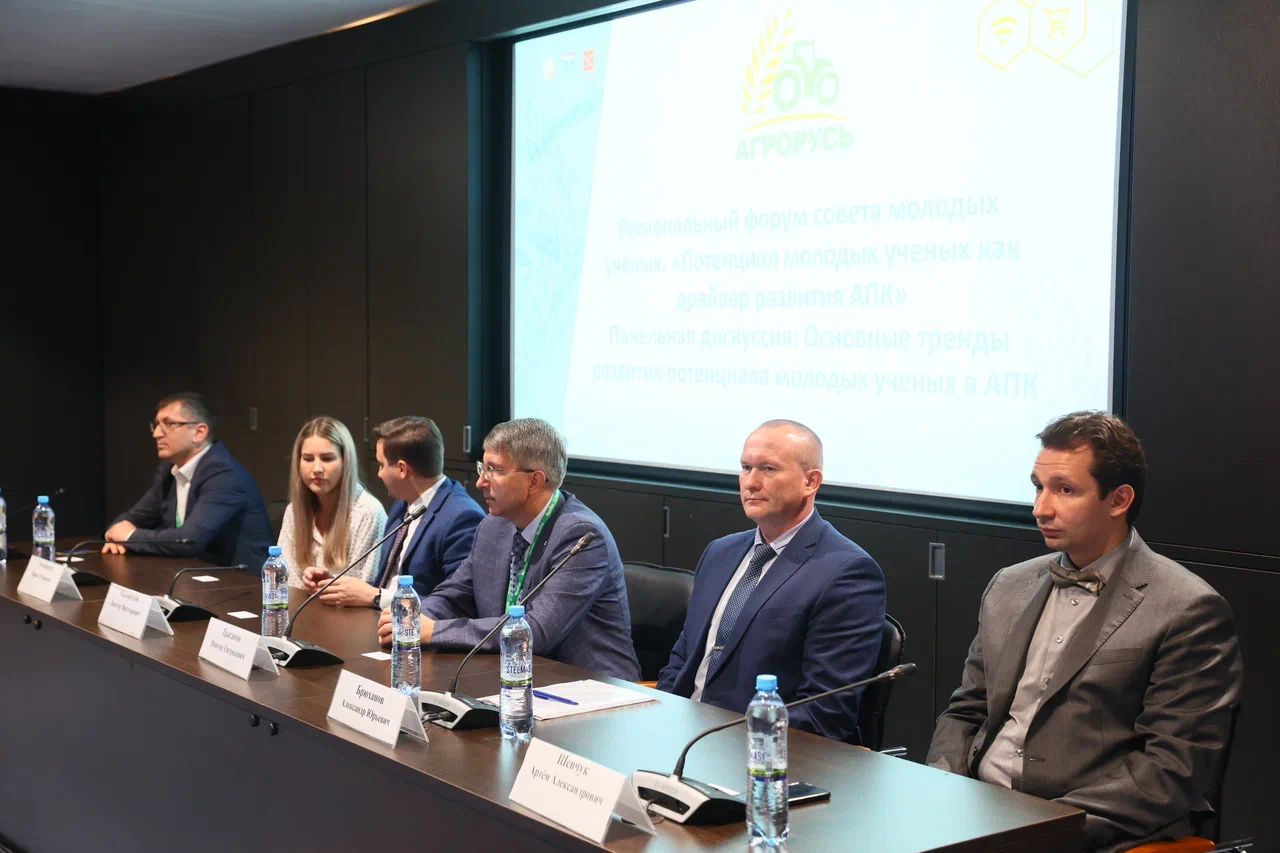New profession – agro-system administrator
On August 30, the plenary session of the Regional Forum of the Council of Young Scientists in the format of a panel discussion on the topic “Main trends in the development of the potential of young scientists in the agro-industrial complex” was held at EXPOFORUM.
Professor, corresponding member of the Russian Academy of Sciences, Director of the Institute of Agroengineering and Environmental Problems of Agricultural Production (IAEP), Doctor of Science Alexander Bryukhanov spoke about the global problem of food shortage.
“If you take the medical norms for proper food consumption, we are below 50% of the need on the planet on average. Of course the situation varies from country to country: in some places people overeat, in some places they starve,” Brukhanov said.
Thus, the world produces 850 million tons of milk per year (290 grams per day per person with the norm of 700 grams), 115 million tons of pork (35 g/person per day with the norm of 80 g/person per day), 135 million tons of poultry (46 g/person per day with the norm of 100 g/person per day), 1 trillion 360 billion eggs (0.5 eggs per person per day with the norm of 0.8 eggs per person per day).
“The saddest thing is that despite such statistics, in some countries up to 40% of agricultural products are utilized due to inefficient economic schemes of sale,” Brukhanov continues.
According to the scientist, interdisciplinary interaction should be strengthened to solve this problem. Agriculture is not just a field that brings together scientists from many different specialties, it is a strategic industry for the entire planet. More than 37 percent of the entire landmass is now engaged in agriculture. More than 70% of the world’s total freshwater use is for agriculture.
Viktor Tsyganov, Chief Researcher of the St. Petersburg Scientific Centre of the Russian Academy of Sciences, Director of the Research Institute of Agricultural Biology, Doctor of Biological Sciences, also emphasized the importance of interdisciplinary research and told what developments his Institute is conducting to solve the problem of food shortage.
“We are creating microbial preparations that would increase yields and stress tolerance of plants, and we are developing biofertilizers that have microbes planted on them. Such fertilizers are more expensive than conventional ones, but they increase yields by 30%. If we develop in this area, we can also solve the environmental problem by reducing the use of nitrogen fertilizers. Up to 30% of the world’s energy is used for their production,” Tsyganov said.
The Doctor of Biological Sciences noted that new areas are also emerging in genetic engineering, in particular – genomic editing. It helps avoid the problems that arise with classical GMO technology.
Irina Timofeeva, Professor of the Institute of Chemistry of St. Petersburg State University, Candidate of Chemical Sciences, complained that business rarely turns to science to solve specific problems and noted that she is an opponent of the trend for chemical synthesis of food products.
“For me, the job of an agricultural chemist is to analyze foods, supplements, feeds, medicines. Chemistry should be a guarantor of product quality compliance with all necessary requirements,” Timofeeva said.
Associate Professor of the Department of Private Zootechnics at Federal State Budgetary Educational Institution of Higher Education Russian State Agrarian University – Moscow Timiryazev Agricultural Academy Viktor Malorodov stated that vegetable meat and meat created with the help of chemical synthesis will never replace natural products, as it is inferior in taste.
According to him, a new profession – agro-system administrator – is emerging in the agrarian sphere. This professional must have knowledge of the entire chain of operations, from crop sowing to its production, logistics and sale.
Artyom Shevchuk, Director of the Digital Transformation Centre of Federal State Budgetary Educational Institution of Higher Education State University of Land Management, spoke about the work on land involvement in agricultural turnover. More than 50 million hectares of uninvolved land have remained in Russia since the Soviet period. They are either overgrown or lost altogether. Therefore, this potential needs to be restored.
The regional forum of the Council of Young Scientists “The potential of young scientists as a driver of agro-industrial complex development” is held within the framework of the 32nd International Agro-Industrial Exhibition Agrorus-2023 from August 30 to September 1. It is organized by St. Petersburg State Agrarian University and ANO SoBytie with the support of the Committee on Youth Policy and Cooperation with Public Organizations.

 Calendar
Calendar
 Online application
Online application
 Map
Map
 How to get
How to get



